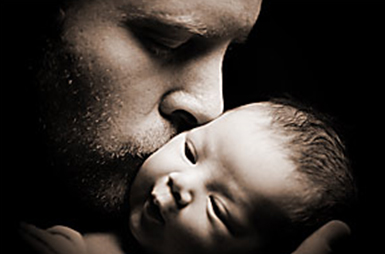Our Weekly Dose of God
6 Things Every Kid Needs to Hear
By: Pr. Deris Coto
Words matter. Our children soak them up like little sponges. I can watch my daughter play “house” with her dolls and hear her say some of the same things her mom or I tell her. It’s proof that she’s listening to what we say, even when it doesn’t seem like it.
Of all the phrases we say as parents, there are a few that I believe every child needs to hear.
-
God loves you.
The most basic and important truth we can instill in our children is the fact that God loves them. It’s simple enough that even a young child can grasp it. They will carry it throughout their lives. The Bible says to “Train up a child in the way he should go; even when he is old he will not depart from it” (Proverbs 22:6, ESV). If you tell your children regularly that God loves them, there’s a pretty solid chance they’ll never forget it. If you never tell your children that God loves them, you are depriving them of the head start they deserve and leaving an open door for the Enemy to come in and tell them otherwise.
-
I love you.
This phrase probably goes without saying. Sure, we all love our children. Showing we love them every day is important. And, yes, there’s a lot of truth to the saying “Actions speak louder than words.” But, there’s no substitute for telling your children you love them. Don’t let the sun go down on a single day without them hearing those words.
-
I am here for you.
Children need to know that their parents are always there. We need to communicate with them and let them know that there’s no situation too big or scary for Mom or Dad. Just as we can take anything to God, our children need to trust that they can bring anything to us. Our children need to understand we are always there for them, and in addition to proving it by our actions, we can tell them with our words.
-
I am proud of you.
The other day, I was talking with my son about a situation he had at work. He was telling me how he handled it, and I was impressed. I said, “Son, you handled that perfectly. I’m so proud of you.” His face lit up in a way I don’t see that often. It was a perfect reminder for me that I don’t say it enough.
-
I was wrong.
Our children need to see that we are human. Saying you were wrong and you are sorry communicates that you aren’t perfect. Our kids need to know that we make mistakes, and that making mistakes is okay. Admitting you were wrong shows them the proper response to making a mistake – fessing up to it. Beyond all of that, it lays the subtle groundwork to remind them that our imperfection is the reason we are in need of a perfect Savior.
-
You were wrong.
One of the most important responsibilities we have as parents is teaching our children right from wrong. Too many children are raised without a true sense of what is right and what is wrong, and from my view, it’s largely because parents aren’t telling them. I’ve seen too many parents make excuses for their children, defend them at all costs and shield them from any negativity. We are all wrong from time-to-time. If we practice #5 and tell our children when we are wrong, it should be easier for them to do the same. It’s important for them to understand that being wrong is not the problem, as much as how they respond to it.
Our words are important, especially considering the impact they can have our little ones. As parents, one of the best things we can do is remember this: “Let no corrupting talk come out of your mouths, but only such as is good for building up, as fits the occasion, that it may give grace to those who hear” (Ephesians 4:29, ESV).

